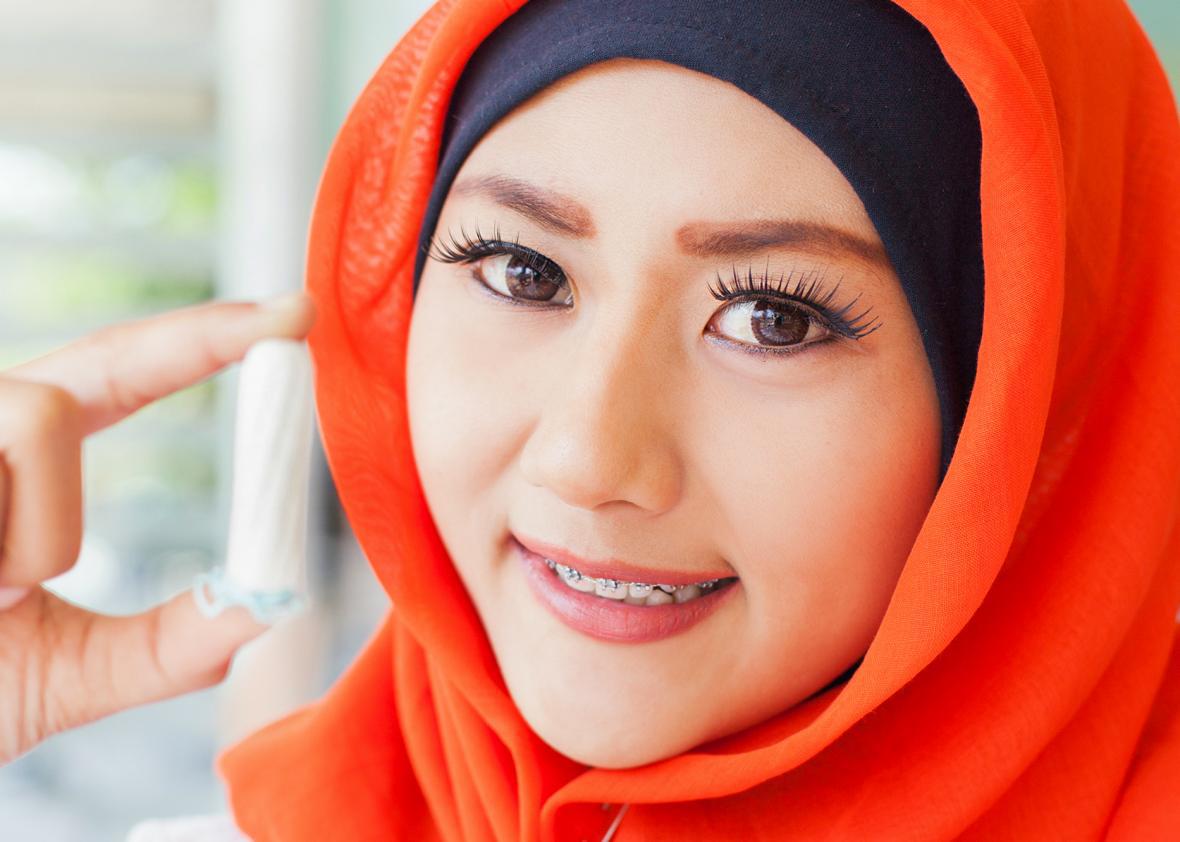The New York City Council unanimously decided on Tuesday to fund the provision of menstrual supplies in all city public schools, prisons, and homeless shelters. Once Mayor Bill DeBlasio signs the bill package, which he is expected to do, women and girls with some of the greatest barriers to adequate menstrual hygiene will have access to free pads and tampons.
Proposed by council member Julissa Ferreras-Copeland, the new legislation is the first of its kind in the U.S. Currently, in some schools, girls have to wait for an overburdened nurse to give her a pad or tampon, sometimes missing class in the process. In others, girls must go through multiple school employees or sign a list explaining why they didn’t bring a pad or tampon to school, Ferreras-Copeland told New York magazine. Many people have heard that unmet need for menstrual health products causes girls to miss school in other countries, but in a city like New York, where more than 76 percent of students qualify for free or reduced-price lunch, it happens, too.
Menstrual hygiene suffers in schools, prisons, and shelters due to the tight budgets of both families and institutions: The former are often forced to choose between keeping their kin fed and purchasing menstrual supplies, while the latter can get away with rationing out an insufficient supply of pads and tampons because administrators (especially male ones) don’t think of them as necessities. “Menstrual hygiene products are as necessary as toilet paper, and no one is freaking out about toilet paper,” Ferreras-Copeland said in an announcement at New York City Hall on Tuesday. Toilet paper, Jennifer Weiss-Wolf wrote in the New York Times on Tuesday, “is freely available in public and school restrooms, funded by city budgets and viewed as essential to everyday health and sanitation,” while “those living in poverty are left to access tampons and pads on their own.”
The new bill, which passed 49-0, will establish tampon and pad dispensers in the bathrooms of public schools with female students in grades six through 12 in an extension of a pilot program launched last year. It will also require prisons and jails operated by the city to give inmates menstrual supplies as soon as possible after they ask for them. Current prison systems for tampons and pad distribution vary widely across states and facilities, but in many places, incarcerated women are given an insufficient monthly supply or must buy products with their own limited funds from the commissary. This inhumane, unhygienic practice is dramatized in the latest season of Netflix’s Orange is the New Black, wherein a shortage of menstrual supplies in the commissary causes hijinks, black market sales, and health hazards, exacerbating existing inmate conflict. Women try making their own makeshift tampons and pads, shove wads of toilet paper up their vaginas, and bleed all over their clothes.
This is happening in real life, all over the country, right now. Last year, Chandra Bozelko, a former inmate at the York Correctional Institution in Connecticut, wrote in the Guardian that she and her cellmate got five pads between the two of them each week, making for 10 per person per month—not nearly enough. The pads they got didn’t have wings or sufficient adhesive so they’d slip out of inmates’ underwear and pant legs; Bozelko saw women wear the same pad for multiple days because they didn’t have fresh ones. Women with savings bought extra menstrual supplies at the commissary, but even then, Bozelko wrote, “prison tampons are essentially waterproof.” In 2014, the American Civil Liberties Union filed a lawsuit against Muskegon County in Michigan, alleging that inmates at the county jail were made to wait hours or days after requesting pads and tampons. The suit described a system of humiliation whereby women would bleed through their uniforms, yet jail officials wouldn’t give them clean ones until the next laundry day. Bozelko wrote that this is a standard method of asserting power by degradation:
Even though keeping inmates clean would seem to be in the prison’s self-interest, prisons control their wards by keeping sanitation just out of reach. Stains on clothes seep into self-esteem and serve as an indelible reminder of one’s powerlessness in prison. Asking for something you need crystallizes the power differential between inmates and guards; the officer can either meet your need or he can refuse you, and there’s little you can do to influence his choice.
Over the past year, the tampon tax has become a major feminist target for destruction. The term is kind of a misnomer: What activists call a “tampon tax” is actually just a regular sales tax, which applies to tampons and pads. Many argue that it shouldn’t, since medical supplies and food products as inessential as Fruit Roll-Ups are classified as “necessities” and thus exempt from sales tax. I’ve argued that menstrual supplies should be covered by food stamps and/or Medicaid, since excluding the products from taxation would only save most menstruators a few dollars per year. Regardless of whether they’re taxed, tampons and pads are not luxuries; they are necessary products for involuntary biological functions. Any number of women without menstrual supplies doesn’t just indicate a failure of the government to provide basic living necessities—it constitutes a public health concern for the community.
That’s why New York City’s new bill is an important step toward dignity and health for all women. Linda Rosenthal, a member of the New York State Assembly who represents part of Manhattan, promised to bring the issue to the state capitol. “Women are not ashamed to say the word period. It’s time to take the veil off these things,” she said at Tuesday’s announcement. For poor and incarcerated women and girls, worrying about bleeding through clothing or keeping up basic hygiene causes psychological stress and a formidable barrier to employment and education. There are few far-reaching public-health dilemmas with solutions as clear-cut as this one: Put pads and tampons where women and girls need them most.
